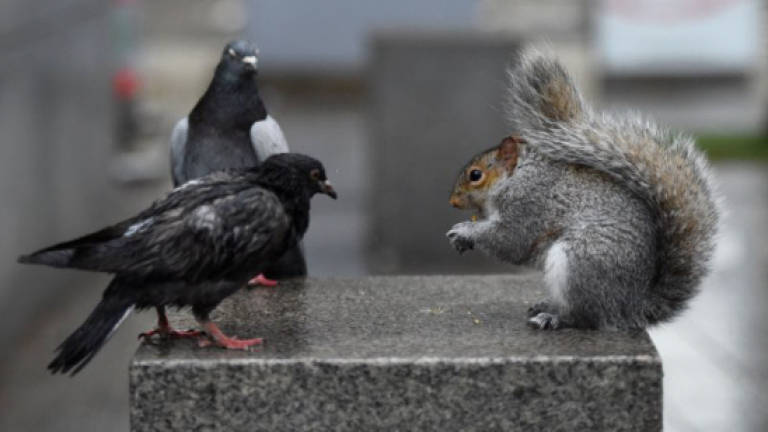Mammals more likely to survive climate change

PARIS: Mammals and birds stand the best chance of all animals of surviving Earth's rapidly changing climate, researchers said Monday.
An analysis of how nearly 11,5000 species fared over 270 million years of hot-and-cold fluctuations showed that warm-blooded creatures cope better with change than reptiles and amphibians, a team reported in the journal Nature Ecology & Evolution.
"We see that mammals and birds are better able to stretch out and extend their habitats," said lead author Jonathan Rolland, a researcher at the University of British Columbia.
"This could have a deep impact on extinction rates and what our world looks like in the future."
When a massive space rock crashed into Earth some 66 million years ago, the debris thrown in the atmosphere lowered the planet's temperature for decades. The shock wiped out the world's non-avian dinosaurs, from T-Rex to the three-horned Triceratops.
But warm-blooded land mammals survived, and then thrived with all those predatory dinos out of the way.
Global warming today has triggered another so-called mass extinction event — the first since the demise of the dinosaurs, and the sixth in the last half-billion years on Earth.
Species are disappearing up to 100 times faster than before the Industrial Revolution, when temperatures began to climb, earlier research has shown.
Looking at fossil records and genetic data, Rolland and colleagues reconstructed where animals lived over the past 270 million years — and the temperature ranges that allowed them survive.
When a balmy planet gradually cooled some 40 million years ago, for example, mammals and birds successfully adapted and move to new habitats. Cold-blooded animals, not so much.
"This might explain why we see so few reptiles and amphibians in the Antarctic or even in temperate climates," said Rolland.
These creatures can also evolve under environmental pressure, but it takes longer, he added.
Animals known as endotherms can regulate their body temperature, allowing them to keep their embryos and offspring warm, and boosting survival chances.
This group, which includes mammals and birds, can migrate or hibernate more easily than cold-blooded "ectotherms", whose body temperature is determined by the environment.
Studying past evolution and extinctions of species can provide crucial clues on how current, man-made climate change — far more rapid than any natural fluctuation that has happened in the past — will affect Earth's biodiversity. — AFP